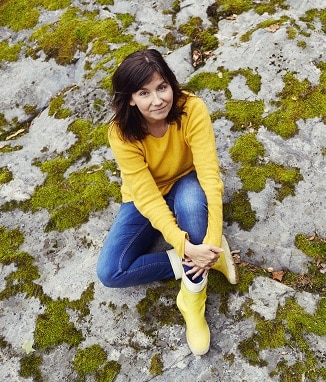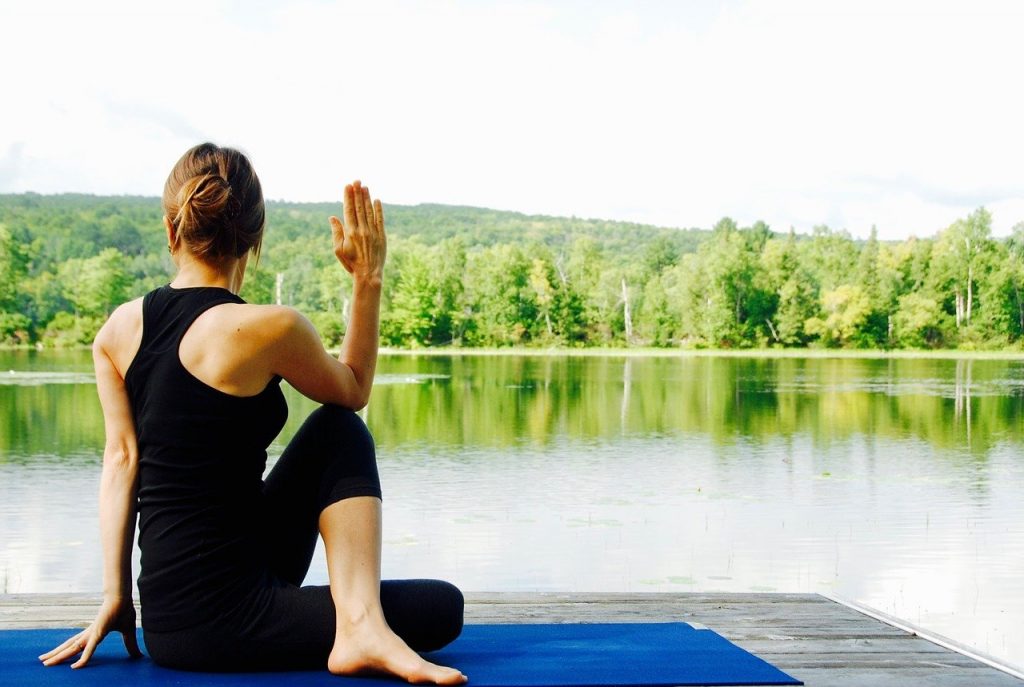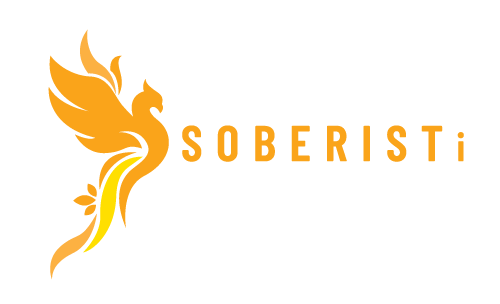
“You might be surprised at the many ways in which quitting alcohol can make a difference. I put the cap on in November 2015 after six years of reflection.
The main reason I didn’t stop drinking alcohol earlier was that I thought a sober life would be dry and dreary. I was afraid that if I stopped drinking, I would become boring, stodgy, and a social outcast.
Just seven years ago, there was no information available for anyone thinking about quitting about how life changes when you put the cap on.
I found shelf after shelf of stories in the library about the terrible things people do when drunk and how alcohol destroys lives, but those stories ended when people got sober. I didn’t need to know what it feels like to drink alcohol and what it can lead to; I already knew that from my own experience. I was thirsty for information about a whole new dimension: life without alcohol.
Is there life at all without alcohol?
But I decided to take the plunge, put the cork down, and start writing a book about my experiences and the long-term effects of quitting alcohol.
Possibly the world’s first sober curious book was born: Free from Wine (Wise Life, 2016).”
So, what are the effects of stopping drinking alcohol?
When you put the cap on, your body starts to repair itself at the cellular level, and soon that repair work becomes visible in the mirror. However, even greater changes are happening invisibly, internally.
Nerve pathways will slowly begin to recover (unless alcohol has caused irreversible damage), bringing with them wellbeing, restorative sleep, joy, and peace of mind.
I will now explain how quitting alcohol affects you in the first weeks, months, and year, and conclude with a list of 27 things that are impacted by quitting alcohol. There are 27 in total.
Most of these effects I have experienced myself, and I have also found scientific explanations for all of them.
Some of the effects I have listed can be found in the book Free from Wine, while others I have discovered later, after the book was published.
I hope this text inspires you to try a new, sober life.
Ira

The first weeks after quitting alcohol
In the first few weeks (and even months) of sobering up, you may feel tired.
Your sleep quality will improve dramatically, and you may wake up feeling refreshed and in a good mood, but by the afternoon, you might find yourself completely exhausted.
The intensity and duration of fatigue are influenced by the time of year, the stressfulness of your life at that moment, and, of course, how long you have impaired your recovery and sleep quality with alcohol. However, it’s also possible that you may not feel tired at all after sobering up.
For most people, fatigue sets in because alcohol disrupts the body’s natural rhythm.
Alcohol is a sneaky way to build up sleep debt: it acts as a stimulant, and when you drink, you may not feel tired. But once you stop using it, the truth becomes apparent.
Anyone who has partied hard over the weekend knows that it’s not until Tuesday or Wednesday that you start to feel the same mental clarity you had before the party.
Fatigue is also caused by the recovery of neural pathways, which can lead to an increase in creativity.
After a few weeks of being sober, you may find that you start having more dreams, and when you’re awake, creative ideas may pop into your head at such a rapid pace that you don’t know which way to turn. Mental work can tire you more than any physical exercise. You can see this in dogs: they don’t tire from fetching sticks, but they do tire quickly from mental training.
So, you might wake up feeling upbeat, cheerful, and energetic, but by the afternoon, you could be exhausted from all the thoughts that have flooded your mind. This roller-coaster situation will even out over time.
External changes are also quickly noticeable:
After two weeks of sobriety, your waistline may have already shrunk a little, and your stomach may have flattened. Of course, this also depends on your starting point and how much and how often you consumed alcohol before quitting.
One month after quitting alcohol
Stress hormone levels are reduced, which you will feel as increased peace of mind.
Your body’s fluid and salt balance has returned to normal, which is reflected in your appearance and a reduced waistline.
Your blood pressure will have leveled out, and you’ll find you feel better when exercising.
Two months after quitting alcohol
Your waist has already narrowed considerably, and any swelling has gone down. This is due to the restoration of the body’s fluid balance.
Your brain works more quickly than before; melancholy recedes, and joy increases.
Hair growth may slow down (in women), pores may reduce, and your eyes may appear brighter.
You will feel more relaxed, be able to be present, and experience more laughter and joy.
Three months after quitting alcohol
A variety of emotions will return to your life, replacing the drabness with color and variety. You’ll feel more energetic than before. Depression may already be completely gone.
You may start to remember what you dreamed of as a child and reach for that flame of passion that burned in you before alcohol entered the picture.
At this point, you might find that you have become a “sugar monster.” You may not have had a sweet tooth before, but your body was used to getting its sugar fix from alcohol. Now that you’re not drinking, you might find yourself craving treats all the time.
One hundred days after quitting alcohol
Mental and physical well-being have improved considerably. You will increasingly feel happiness and joy, as well as peace of mind. Life feels good, and you may feel euphoric, as if you’re in love.
Tiredness will be gone; you’ll get a lot done and find yourself feeling the same joy and enthusiasm you once did as a child.
Your life expectancy has increased because you have cut out alcohol, the biggest cause of premature deaths among working-age individuals.
If your drinking hasn’t caused permanent damage, your liver will have recovered and be functioning optimally again.
Six months after quitting alcohol
Life as a soberist already feels natural. You may have dreams where you drink, and in the morning, you’ll be grateful it was just a dream.
Sobriety will feel so easy that you might occasionally toy with the idea that maybe you didn’t have a problem. Remember, alcohol is an addictive substance, and you are not yet completely free from its influence. Know that your problem was never that one reasonable glass (12cl or a bottle of beer) but all the doses that follow that first one.
One year after quitting alcohol
You have probably faced most of the situations in which you used to drink alcohol while being sober. This is why the coming year will be easier: you will no longer experience sadness or melancholy on occasions like Midsummer or New Year’s Eve, for example. You already have new memories of these annual rites of passage—good, atmospheric memories where you enjoy situations without alcohol.
And you truly remember them because you were sober.
Friendships that were based solely on a common hobby—drinking alcohol—are likely to be broken or have already been broken. In return, your relationships with true friends will improve, and with this life change, you may also make new friends.
You will be present in your life and can enjoy situations in peace. Your ego will be reduced, allowing you to be truly yourself and more interested in other people.
Your self-esteem will boost because you can trust yourself, and you no longer get grumpy from drinking. You will dare to make changes that lead you where you want to go.
27 things that stopping drinking affects
- YOU SLEEP BETTER. A Finnish study showed that even a single dose of alcohol impairs sleep. Alcohol prevents restorative sleep, which hinders the brain’s ability to cleanse itself of waste products.
- BRAIN FUNCTIONS ARE CLEAR, With alcohol no longer destroying deep sleep, the brain can function better without interference from alcohol’s impact on neurotransmitters and brain cells.
- MEMORY IS IMPROVING, for the above reason.
- WORK PRODUCTIVITY INCREASES because your natural dopamine production is restored, leading to the production of happiness hormones..
- JOIE DE VIVRE INCREASES, for the same reason that joy increases.
- EYEBAGS SHRINK, because alcohol no longer disrupts the body’s fluid balance.
- CRAMPS END for the same reason.
- THE PORES IN THE SKIN SHRINK. The sugar content in alcohol damages collagen production, causing pores to dilate.
- THE SKIN TONE EVENS OUT. Alcohol causes dehydration and swells tiny blood vessels in the skin.
- WRINKLES ARE REDUCED. Alcohol dries out the skin and deepens furrows.
-
BODY WEIGHT WILL DROP. The liver and fat metabolism begin to function optimally, and the fat around internal organs starts to melt away.
-
FERTILITY IMPROVES. Many studies have shown that even moderate alcohol consumption reduces fertility.
-
DIGESTION WORKS BETTER. The lining of the stomach heals, and alcohol, which is a diuretic, no longer causes constipation.
-
EYES BRIGHTEN. Alcohol no longer swells blood vessels around the eyes, and liver function improves (if it hasn’t been permanently damaged).
-
ANXIETY LEVELS DECREASE. You are no longer encountering drunks, and alcohol no longer raises your blood pressure or dilates blood vessels.
-
BEING PRESENT BECOMES EASIER. Your mind is no longer wandering until the moment you drink. You can only be fully present when you are sober; even a small amount of alcohol can take you out of the moment.
-
YOU GAIN MORE TIME IN YOUR WEEK. You no longer spend time thinking about, buying, using, and recovering from alcohol.
-
YOU’LL HAVE MORE ENERGY. Deep restorative sleep and improved bodily functions contribute to increased energy levels.
-
ORGASMS GET STRONGER. Alcohol numbs the nervous system and reduces sensitivity. As a soberist, orgasms become easier to achieve and feel stronger. In men, alcohol can cause erectile dysfunction.
-
SEXUAL SATISFACTION IMPROVES. Alcohol numbs the nerves, hinders arousal, and disrupts presence.
-
YOU FEEL BETTER. Stopping alcohol improves metabolism and helps waste products leave your body more quickly.
-
YOU FEEL HAPPIER AND MORE BALANCED. Stress hormone levels decrease, while natural happiness hormones improve.
-
ALLERGY SYMPTOMS ARE REDUCED. A study shows that even a small amount of wine can intensify allergy symptoms.
-
CONFIDENCE IMPROVES. You can trust yourself more. No more grumbles from drunken escapades.
-
MONEY IS SAVED. You no longer spend on alcohol, bars, nightclubs, or taxis.
-
CANCER RISK IS REDUCED. Alcohol is a major risk factor for cancers of the mouth, throat, larynx, esophagus, liver, breast, and bowel.
-
YOU STAY HEALTHIER. Alcohol consumption weakens the immune system. By stopping drinking, you lower your risk of seasonal flu and other illnesses.
How does quitting alcohol affect your well-being, work and social relationships?
In March (11.3.2022), I conducted a survey of people who have given up alcohol. I asked how quitting alcohol has affected their lives, how much money and time they have saved that would previously have been spent on alcohol and its side effects.
I built the survey using SurveyMonkey and shared the link on social media in groups focused on alcoholism, recovery from alcohol addiction, being sober curious, and sober living.
Survey Results:
Fifty-two people responded to the survey. For the questions regarding time and money savings, I only considered numerical answers.
Saving Almost €4,500 in Money and Almost a Month in Time
You save a significant amount of money when you give up alcohol: an average of €374 per month, which totals €4,488 per year. With that amount, you can achieve quite a lot.
However, there was considerable variation in responses; some drink in restaurants and take taxis, spending considerably more than those who drink at home or in supermarkets.
Quitting alcohol also saves 47.2 hours per month, accounting for time lost to hangovers and disability, which totals nearly 24 days a year—almost equivalent to the entire month of February.
Other Positive Effects of Stopping Alcohol Consumption:
- 92% reported improved life management.
- 84% sleep better and wake up more alert.
- 74% experienced increased energy.
- 74% reported a decrease in shame and guilt, replaced by pride in themselves.
- 63% saw improvements in self-esteem.
- 66% are better at work and at home.
- 61% have a better mood than before.
- 61% experienced a reduction in anxiety, replaced by peace of mind.
- 58% reported increased creativity.
- 48% received positive feedback from family/relatives about their sobriety.
- 42% noticed a reduction in waist size.
Stopping Alcohol Use Brings Positive Changes in Many Areas of Life
When given the opportunity to speak freely, sober individuals shared the following about the consequences of quitting alcohol:
“Overall, my physical and mental well-being has improved. Alcohol is no longer on my mind, allowing me to concentrate on other things. Those close to me say that I am more present.”
“The best part is not having to think about what I’ve done or said while drunk. I remember everything and can stand behind my actions as my true self.”
“I’ve realized that I don’t need alcohol to feel encouraged; I can be myself when I’m sober, and I actually like who I am.”
“My anxiety hasn’t completely disappeared, but I can manage it better when sober. There have been nothing but positive outcomes from my sobriety.”
“I now have peace of mind. I no longer expend energy worrying about hangovers or feeling ashamed. My weekends are no longer wasted due to drinking and subsequent recovery.”
“My activity in all areas of my life has significantly increased, including my connections with loved ones. I have embraced a more active lifestyle!”
“I’ve experienced improved sports performance, better results, and faster recovery. My metabolism is also more efficient.”
“I enjoy the freedom of being myself and not drinking when others do.”
“I have more energy, cheerfulness, and authenticity. I sleep better and feel generally healthier, not grumpy like I did when I drank. I am more present at home.”
“I can keep my promises.”
“The most important change is my peace of mind—no more anxiety. I no longer experience mind-numbing fatigue or bad days at work. My relationships have calmed down, and my connection with my children has improved.”
“With no hangovers, my free time is of higher quality.”
“Alcohol no longer dominates my life.”
“I experience real presence and ease of being. Although it can be difficult at times, dealing with challenges is easier when sober. I am filled with gratitude.”
“I feel free.”
“Making art has become easier for me.”
“I now have a life I never had before I quit drinking—not even before I became an alcoholic, because I previously suffered from the alcoholism of my loved ones.”
“My relationships have improved at every level. I see the world positively and enjoy exploring new things without fear. Solitude is no longer scary; it is enjoyable. My cognitive capacity has expanded, and I can easily focus on multiple things.”
“I’ve reclaimed my sensitive self.”
“Leaving alcohol behind has led to healthier relationships. I’m mentally and physically healthier, no longer worrying about hangovers. I can enjoy time with friends and do more than just hang out in bars. I’ve repaired my relationship with my adult children, engage in various activities, travel, and participate in volunteer work. I’m learning new languages and pursuing hobbies, such as sewing and hiking.”
“I’m deeply involved in my grandchildren’s lives.”
“I work with substance abusers and have made new friends through that. My confidence has returned, and I can take care of myself.”
The downside of quitting alcohol:
- Feeling Cold: If you spend an evening with friends who drink alcohol, you might find yourself feeling cold sooner or later. Your friends won’t feel chilly because alcohol acts as a nerve-paralysing agent, numbing their sensitivity to temperature. The solution is to dress warmly and enjoy some hot tea, mulled wine, or even hot chocolate.
Is it easy to stop drinking alcohol then?
While the benefits of quitting alcohol are clear, is it easy to do? Occasionally, participants in the “Soberisti” online course express that quitting alcohol is not always straightforward or enjoyable, and they’re right.
The beginning is always the hardest part of any life change, and this holds true for quitting alcohol.
Initially, it’s challenging because you’re uncertain about whether you can successfully quit and what the outcome will be. Before experiencing the positive changes that come with sobriety, you may be more susceptible to giving up.
Difficult moments can arise frequently at the start. They often occur when you encounter situations or feelings that you previously addressed with alcohol. Once the numbing neurotoxin has been removed from your “medicine cabinet,” you must face these situations and emotions in a sober state. This can initially feel overwhelming.
During your first year of sobriety, you might experience moments of melancholy, especially during holidays. This is normal and part of the process of letting go. Just as one might miss a passionate yet destructive relationship that caused more harm than good, a person trying to quit alcohol might also long for the enjoyable times associated with drinking.
The mind can play tricks, recalling fond memories of the past when alcohol was present, leading the newly sober person to question their decision.
However, the longer you remain sober, the easier it becomes. Reflecting on your journey from day one to the present, you’ll notice that the positive experiences have outweighed the negative ones.
Difficult moments are just that—moments. They become less frequent as you progress in your sobriety.
We reinforce what we focus on, which is why the course is titled “Free Yourself from Wine with Joy and Ease”—not “Free Yourself from Alcohol with Sadness and Difficulty.” This course is designed for individuals who want to stop using alcohol, motivated by joy and the desire for freedom.
There are various methods available, and that’s beneficial; what works for one person may not work for another.
There Has Been Surprisingly Little Tear-Up
When quitting alcohol, the risk of relapse is highest in the first few days.
Discussions in the Drinking Link reveal that many people can go four days without drinking, only to relapse and find themselves back at square one. This cycle often repeats, as getting sober can feel insurmountably difficult.
Returning to day one and having to navigate the hardest parts repeatedly—without being able to fully appreciate the benefits of sobriety—requires energy and self-belief. Each setback can make it harder to quit.
However, on the Soberisti online course, relapse has been less common than achieving sobriety. When some newcomers struggled during the summer heat, I decided to share a passage from Clare Pooley’s The Sober Diaries(2017) to inspire them.
Clare Pooley’s sobriety journey began much like my own: through writing an anonymous blog. She, too, realized she wasn’t alone, and her blog began attracting more followers each day.
Once Clare reached a stage where sobriety felt manageable, she wrote a story for the “serial kickers” following her blog, which she believed would provide strength in difficult moments.
Since Clare’s brilliant work is not yet available in Finnish, I’m sharing her story here for anyone who needs reassurance during challenging times:
Clare Pooley’s Riveting Story:
Imagine you are standing in a meadow where you have spent a long time.
At first, the meadow was beautiful—full of flowers, friends, sunshine, and fluffy bunnies (maybe the bunnies are an exaggeration, but you get the idea!).
Over time, however, being in the meadow has become increasingly miserable. Sure, there are still some sunny days, but it often rains, and sometimes it storms. The flowers have wilted, and the bunnies are sparse and distant.
Then you start meeting people who tell you about another meadow not too far from your own. They’ve seen it, and some of them live there. That meadow resembles everything your own meadow once was—if not better.
The people living there appreciate their meadow because they have experienced the desolation of your current one. They invite you, saying, “Hey, come live with us! There’s plenty of room for everyone, and we genuinely want new friends.”
You are eager to join them, but a dilemma arises. There’s a big barrier blocking your path to this new meadow, and you can’t see what’s on the other side. All you perceive is an obstacle; you don’t know how far you have to go, how long it will take, or whether you have the strength. But you know you can’t remain where you are—the situation keeps deteriorating.
So, you take the leap and tackle the first obstacle. Initially, it isn’t too hard; you have a lot of energy and enthusiasm. However, once you’ve climbed the four-meter wall, navigated the leech-infested ditch, and dug under the fence, exhaustion sets in. You’ve had enough.
With no proof that you can ever reach the wonderful meadow you’ve heard about, you feel a desperate urge to return to the familiarity of your old meadow—somewhere you know, where you’re not as tired, cold, and scared…
And so, you return to your old meadow, your starting point. Initially, it feels great to be home. Others welcome you with open arms and claim that the new meadow doesn’t truly exist. You feel comfortable and think the sun is still shining, and you can see the bunnies in the distance.
But you’ve been fooling yourself. There are no bunnies left in your meadow. The storms are intensifying.
Eventually, you will have to face that four-meter wall again, encounter leeches, and dig a tunnel. You may get over the fifth hurdle before you give up and find yourself back at square one.
You return because you’ve run out of faith. You lack evidence of another meadow, don’t know how long it will take to reach it, and question your ability to succeed. You’re at the end of your rope, having faced the first hurdle so many times.
So, if you recognize yourself in this story, listen closely:
THE MEADOW EXISTS! IT’S JUST AS GOOD AND LOVELY AS YOU HOPE. IT TAKES ABOUT A HUNDRED DAYS TO SEE THE MEADOW AND ABOUT SIX MONTHS TO REACH IT. YOU CAN DO IT.
The hardest part of the journey is at the beginning.
You truly don’t want to keep hurling yourself against walls and leeches repeatedly and returning to square one. Once you overcome the worst, the obstacles will become easier and less frequent. At the same time, you will grow stronger and more equipped to face challenges.
One thing to be cautious of is drawing the wrong conclusions. Sometimes, you might feel like you’re already in the new meadow. You haven’t faced an obstacle in a while, leading you to think:
“Great! I did it!”
But soon, a mighty wall may appear in front of you.
However, by this point, you’ll know how to navigate these obstacles. No worries. You may start to appreciate the importance of overcoming challenges. After all, a meadow without challenges could end up being quite flat and boring.
So, my fellow adventurers, pack your bags, say goodbye to your old meadow, and embrace the journey filled with adventures and obstacles. Keep moving forward!
And don’t look back until you’ve reached your new meadow.
How to stop drinking alcohol?
If you’re convinced that quitting alcohol is the right choice for you and you’re ready to put the cork down—congratulations! You’ve made an important decision towards a more prosperous and, above all, free life. The next step is to assess your situation and reflect on the nature of your relationship with alcohol, as well as the support you may need on your journey.
There are many different types of treatment available in Finland, but it’s essential to remember that not every method suits everyone. When searching for the best way to start a sober life, take the time to read our article on the various addiction treatment options.
If you feel confident that you can get sober on your own, equipped with the right tools and the support of a like-minded community, consider exploring the Soberisti® method and the “Soberisti” online course. This method frames quitting alcohol as a joyful process, making it particularly suitable for those who are currently coping but understand that life would be better without alcohol.


